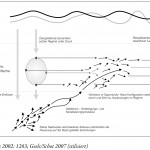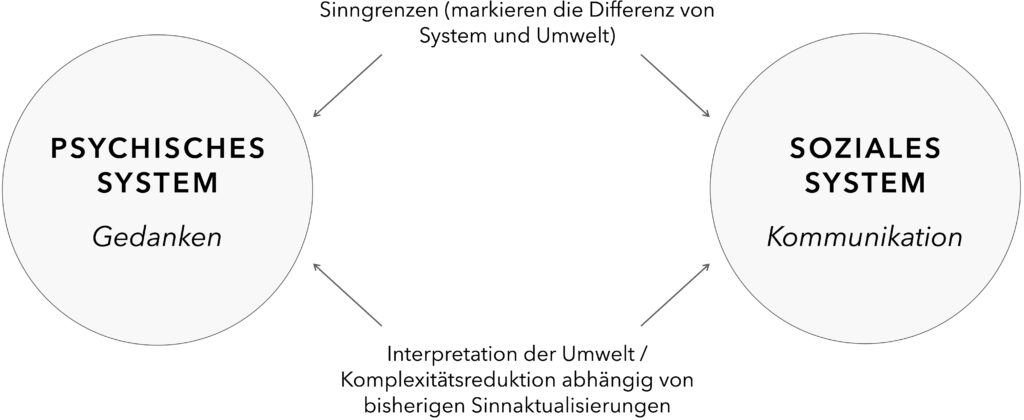18. Dezember 2018
In der Zeitschrift Information Research ist eine Rezension zu unserem Buch »Collectivity and Power on the Internet« erschienen:
The whole book is devoted to the investigation of collective social actors on the internet, their rise, specific features, means of acquiring and losing power on the internet, their role online and technology role in their activities, and the basis of continuing survival.
[…] Chapter 2 provides a basic typology of social actors involved in collective actions on the Internet, starting with spontaneously emerging short-term swarms or flash-crowds to institutionalized production-oriented communities. […] Chapter three critically examines the social movements and changes that the use of digital technology has brought to their activities.[…] Social media do not replace mass media or conventional forms of protest, but enhance the possibilities of networking and feedback beyond the scope of social movement or protest event.
[…] I have found very interesting the next chapter on open source communities, which exposes the loss of their disruptive edge and the new role in the strategy of innovation as incubators of new solutions. […] I liked the classification of the open sourse software projects in relation to two axes of corporate leverage and levels of coordination that helps understanding the variety of projects and initiatives in this field. The most impressive part […] is the discussion of the present state of the open source initiatives and the future potential of openness discourses for the economic and political fields.
The final chapter on the competition and power of the main Internet companies was both most interesting and probably least new to me. I appreciated the logic and the depth of the arguments that were employed to reveal the sources of power, the nature of competition, and the strategies leading to success of the five dominant internet companies. […]
7. Dezember 2018
Vor kurzem ist eine Rezension von Jan-Hinrik Schmidt zum Buch »Kollektivität und Macht im Internet« (Dolata & Schrape 2018) in der Zeitschrift Medien & Kommunikationswissenschaft erschienen (Rezension als Blogbeitrag):
»Die Lektüre […] lohnt sich meines Erachtens, weil sie in vielen Aspekten hochgradig anschlußfähig an kommunikationswissenschaftliche Theorien und Modelle sind. Die akteurstheoretischen Ausführungen des ersten Beitrags etwa lassen sich m.E. gut mit dem sozialkonstruktivistischen Konzept der kommunikativen Figuration von Hepp/Hasebrink (2017) verbinden, aber auch an die masse- und komplexitätstheoretischen Überlegungen von Neuberger (2017) oder Waldherr anknüpfen. Und die Ausführungen zur Macht von Plattformen und Informationsintermediären (einschließlich möglicher Alternativen) sind für alle hilfreich, die sich mit der Frage befassen, wie digitale Medien gegenwärtig Öffentlichkeit und Meinungsbildung wie auch alltägliche Sozialität prägen.«
4. Dezember 2018
Inzwischen ist der Artikel »Verteilte Innovationsprozesse« (Springerlink | Preprint) im projektierten Handbuch Innovationsforschung erschienen, der einen Überblick über die Konzepte der Collective Invention, User Innovation und Open Innovation gibt. Nachfolgend ein kurzer Einstieg:
Das Konzept der Open Innovation wurde durch den US-amerikanischen Wirtschaftswissenschaftler Henry W. Chesbrough eingeführt und bezeichnet die Öffnung vormals organisationsinterner Innovationsprozesse. Seine Popularität gründet zum einen auf dem Versprechen, Innovationsprozesse zu dezentralisieren und damit kostengünstiger sowie transparenter zu gestalten. Zum anderen bietet das Paradigma der Open Innovation eine mögliche Antwort auf die Frage, wie Unternehmen ihre Wettbewerbsfähigkeit in Wirtschaftssektoren absichern können, die – wie z.B. die internationale Softwareindustrie – durch sehr kurze Innovationszyklen gekennzeichnet sind. Dass Organisationen ihr Wissen auch außerhalb formaler Kooperationen miteinander teilen, ist allerdings ebenso wenig ein neues Phänomen wie der prägende Einfluss spezifischer Nutzergruppen, die zu der Weiterentwicklung von Produkten beitragen: Den unternehmerischen Wissensaustausch zu Beginn von Innovationsprozessen beschrieb bereits Robert C. Allen (1983) als Collective Invention; das Phänomen innovierender Anwender hat Eric von Hippel (1976) früh auf den Begriff der User Innovation gebracht.
Zum Artikel »














